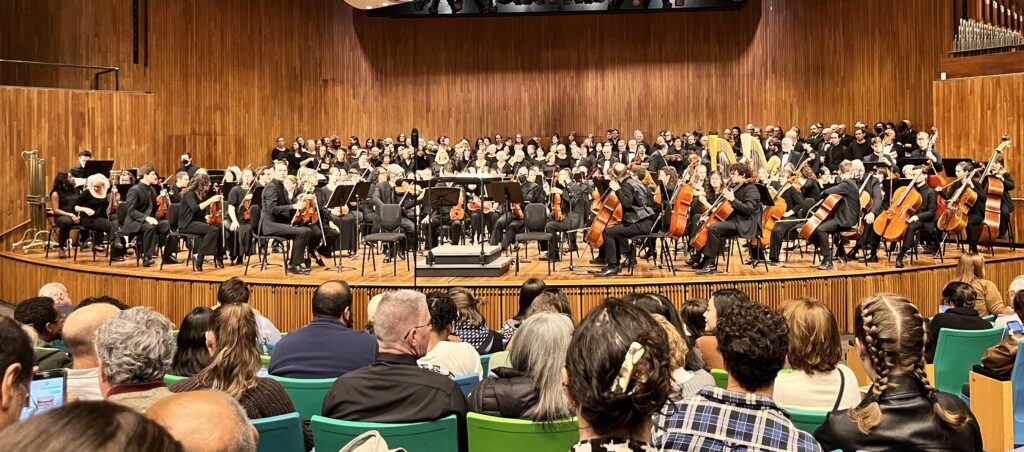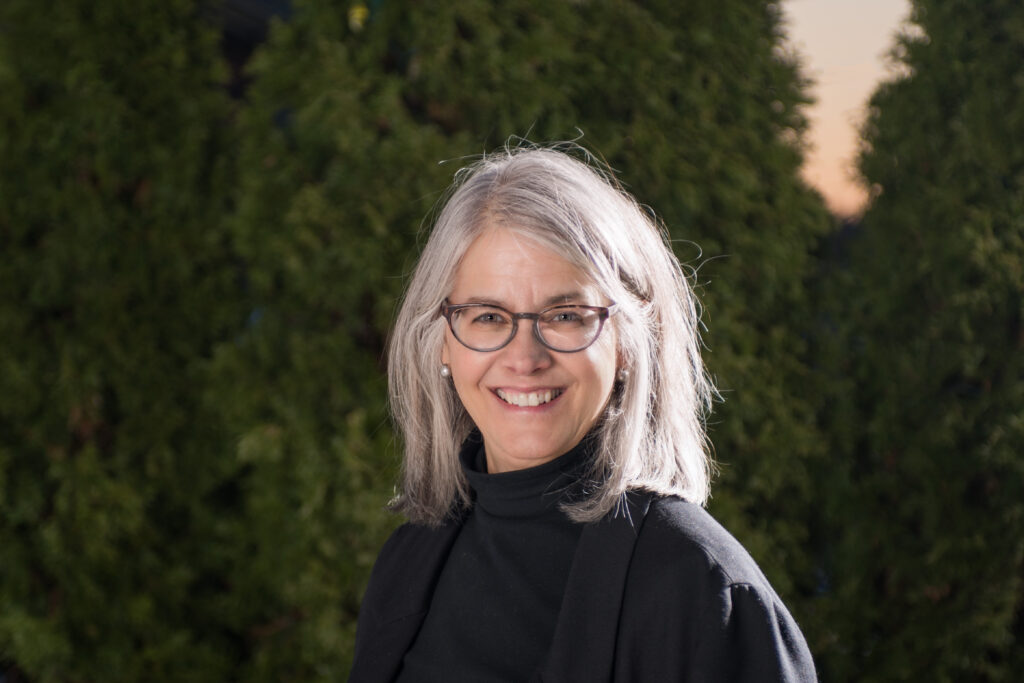“Music and the arts are a reflection of our times. Life may seem hopeless and dark, but there is hope for the future. The cacophony of war gives way to the harmony of peace.” These words from Alex Rogers, the president of the Cambridge Symphony Orchestra, opened the concert called “Reflection: A Concert Reflection of War and Peace”. The program consisted of Gustav Holst’s The Planets, performed by The Cambridge Symphony Orchestra, and Ralph Vaughn Williams’s Dona Nobis Pacem, performed by the Nashoba Valley Chorale, U Mass Lowell University Choir and Chamber Singers, and the Cambridge Symphony. Twelve Actonians sing with the Nashoba Valley Chorale; the group rehearses on Monday evenings at the Acton Congregational Church.

There is nothing like the power of a full orchestra combined with over 160 voices to give depth, meaning and nuanced shading to these words. Holst’s largely instrumental seven-movement The Planets, conducted by Cynthia Woods, begins with Mars/Bringer of War. It is intense, dissonant, dynamic, full, and powerful. It is followed by the melodic Venus/Bringer of peace, and then Mercury/Winged Messenger, which is playful, springlike, and airy. Next is Jolly Jupiter, featuring horns: big, grand, lyrical, majestic. Saturn/Old Age followed, quieter, more tentative, cautious, seeking, questioning. The horns of the Magical Uranus are imperial, timpani and winds emphasizing this, and Mysterious, Mystical Neptune makes one wonder what is unseen, as the sounds of the Nashoba Valley sopranos and altos create a siren song from offstage. Each planet, each movement, is distinct, creating personalities, an atmosphere, and taking us out of ourselves, beyond the stars, to the universal where we are all one, connected through the ethereal threads the notes conveyed.
Dona Nobis Pachem, with the poetry by Walt Whitman, and conducted by Dr. Jonathan Richter, was sung by the combined choruses and soloists. It opens with scenes of war. Dissonance, the desperation, loss, death and intense grief are all conveyed with the drum beats of war, the contrast and counterpoints among the voices.
As we move through the piece there are increasing moments in the more hopeful sounds of major keys, and the soprano’s beseeching, soaring calls for peace, sung powerfully by Diana Jacklin, are woven throughout. Mark A. Cleveland’s baritone provided beautiful balance. Like any progression in life, it is not a straight trajectory. There are moments of joy, expansion, optimism and relief, sometimes pulled back by sadness and grief.
The broadness of the voices in multiple parts made for a lush, rich tapestry, with the youthful voices of the UMass Lowell singers combining gracefully with those of the Nashoba Valley Chorale. It filled the theater, and our beings. We were so much more together–demonstrated by the unity of so many strings, woodwinds, brass and percussion along with every voice.
Acton’s Joy Madden, with NVC for 10 years, remarked that their conductor, Anne Watson Born, brings out the best in the chorus. Madden appreciates the variety of music as well as the community involvement. As a group they sponsor one “emerging artist” from the surrounding community, typically a student.
Patricia Oliver Shaffer, in her second year and also from Acton, stated that it’s a way to indulge her love of music and meet like-minded people. She noted that as a mom, she hopes to never have to experience the pain of loss that the mother in the Vaughn Williams piece endures, losing her dear ones to war.
It was clear that the concert was as meaningful for the performers as it was to the audience. Said Acton’s Deb Strick,10 years with the NVC, “the best thing about participation with the group is the opportunity to learn some of the world’s greatest music, and begin to live with it from within, learning how to create one sound with the group. As with all the pieces we study with Anne Watson Born, living with Dona Nobis Pacem is a privilege. I am so grateful that composers and writers make the sacrifices required to bring something so beautiful into existence. It’s wonderful that we can partake, right in our own community.”
Anne Watson Born, the conductor, observed that preparing the chorale for the Vaughn Williams piece was one of the most satisfying processes of her career.
All of us were carried by the messages from these composers, who visit us with their dynamic, passionate exuberance as well as the depths of heartache. Our worlds are bridged in time, space, and country, and we see in each other the same vision and sense of connection. It was the power of this large group that united the room, leaving us all a little bit altered as we moved forward. We are reminded of our common experiences, as well as our yearning for the myriad of harmonies we can create. It is not possible to have the beauty without the darker storms, and both were expressed with equal energy and vitality, reminding us that we encompass both as humans and can offer each other the hope when we encounter others in darkness.

Meg Stafford is an award winning author of two memoirs, speaker, storyteller and columnist. Her forty years as a licensed psychotherapist have provided invaluable insight into the quirks and passions of the human experience.
